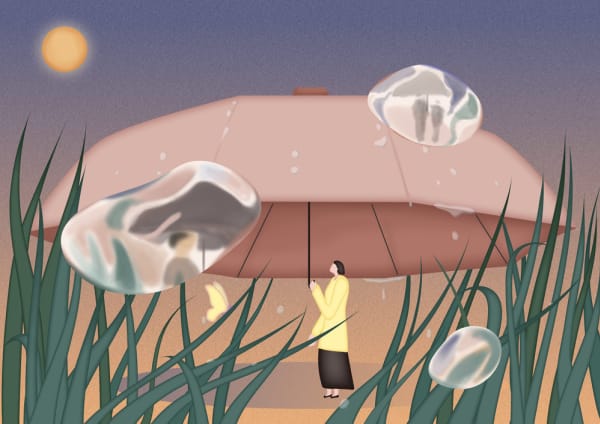At UAL, we believe in the rights of our staff, students, members and visitors to be free to express their lawful views through speech or any creative or artistic expression and we’re committed to protecting these rights. We also expect every member of our community to treat others with respect, dignity and care.
We hope that you won’t experience harassment or sexual misconduct at UAL but if you do, we can support you. This webpage acts as a single source of information about:
- what harassment and sexual misconduct is
- how to find support
- how to report concerns
- the University's policies and procedures in relation to harassment and sexual misconduct.
What harassment is
Harassment is unwanted and unwarranted physical, sexual, verbal or non-verbal conduct which may (intentionally or unintentionally) violate a person's dignity or create an intimidating, hostile, degrading, humiliating or offensive environment.
Harassment can take many different forms, some of which may be more easily identifiable than others:
- Physical, psychological, and/or sexual.
- One off incidents or patterns of behaviour.
- Among students, or between students and staff.
- Range from minor cases of disrespect to more serious acts.
- Carried out in person or online.
What is deemed to be offensive, insensitive or harassment may vary considerably depending on context, the relationships of the people concerned and historical and cultural factors. However, it is the impact not the intent which is most relevant.
What sexual misconduct is
Sexual misconduct covers a wide range of unwanted sexual behaviour from sexual harassment to sexual violence.
Sexual misconduct, or unwanted sexual behaviour can range from unwanted sexual remarks or inappropriate touching to sexual assault and rape.
It can happen in person or online.
Sexual misconduct can be perpetrated by or happen to anyone.
Sexual relationships between staff and students could be sexual misconduct. This is because there is an imbalance of power. We discourage sexual or intimate relationships between staff and students at UAL.
Training
Harassment and sexual misconduct training
We have developed compulsory training for students which will be available to you at the start of term.
Sexual consent training
This short, optional online training module aims to start a conversation about what sexual consent means and challenge myths surrounding sexual violence. You will learn about consent, consent myths, how to tackle rape culture and where to find support.
Complete the optional sexual consent training module.
Guidance
The module includes scenarios that discuss rape and sexual assault. We recommend being in a safe space when you complete the module and considering if there is any support that you might need afterwards. Our student support services are always here to help.
Report harassment and sexual misconduct
We take all reports of harassment and sexual misconduct seriously. If you see or experience it, please report it through our Tell Someone form.
You can choose to speak to an adviser or make an anonymous report. Tell Someone Advisers can:
- Provide information about University and external support services and other informal sources of support, including student networks and initiatives led by the Students’ Union.
- Explain University procedures so that you can consider the best option for you.
- Help you to access mediation.
- Put you in touch with a member of staff who may assist you in resolving concerns informally or refer you to the formal complaints procedures.
Find out more about Tell Someone.
Access support
You can access confidential one-to-one support through the UAL Counselling Service.
If the reporting party is also a UAL student, different staff members will support each person individually.
You can also access advice on the University's disciplinary and complaints procedures through the Students’ Union Advice Service.
Investigations and outcomes
Sometimes it’s not possible to resolve concerns informally and you may want to make a formal complaint.
All complaints are taken seriously and dealt with fairly. Making a complaint will not affect any decisions made about your future academic progress and does not affect your student rights.
If a formal complaint is made this will be investigated. The investigation will include requesting a response from the person who has been reported. If the complaint is upheld sanctions may be applied, such as a formal warning, requirement to sign a behaviour agreement, requirement to sign a no-contact agreement, and in the most serious cases suspension or exclusion from the University.
For the full details on the process and timelines please read:
Find out how to make a complaint.
Policies and procedures
Disciplinary Code for Students
This sets out the standard of behaviour we expect from our students so that everyone can study at UAL in a supportive and non-threatening environment. This Code defines misconduct and details the reporting process and if needed, what to expect from investigations. All allegations of misconduct are investigated fairly, and support is offered to everyone involved.
Read the Disciplinary Code for Students (Word 92KB).
Bullying and Harassment Policy
The University takes all reports of bullying and harassment seriously. We will work with students to address allegations and effects on their well-being and their studies with appropriate confidentiality and sensitivity. This policy sets out the University’s arrangements for responding to bullying and harassment, including definitions of these terms.
Read the Bullying and Harassment Policy (Word 75KB).
Sexual Misconduct Policy
This policy sets out the University’s arrangements for responding to matters of sexual misconduct affecting students, including definitions of what constitutes sexual misconduct. The University treats reports of sexual misconduct seriously and sensitively. We aim to support students who have been affected and empower individuals to make choices that they feel are right for them.
Read the Sexual Misconduct Policy (Word 65KB).
Personal Relationships at UAL Policy
We are committed to safeguarding our community by preventing conflicts of interest and power imbalances that can arise from personal relationships within UAL. This policy outlines appropriate safeguards and processes to prevent abuse of power, conflicts of interest, preferential or detrimental treatment and/or sexual misconduct.
Read the Personal Relationships at UAL Policy (Word 61KB)
Previous versions
If you would like to receive older versions of any of these policies, please contact Mark Crawley, Dean of Students: m.crawley@arts.ac.uk
Freedom of Expression
This guidance sits alongside, and should be considered with, UAL's duty to secure and promote freedom of speech and academic freedom in keeping with the expectations of the Higher Education (Free Speech) Act 2023, which comes into force from 1 August 2025. Please also consult UAL's Code of Practice on Freedom of Expression (Word 72KB) which sets out UAL's values and approach on both freedom of speech and academic freedom
Related content
-

Tell Someone
Find out about our Tell Someone form for reporting incidents and getting support.
-

Benjamin Edmunds painting in the studio, Case Study, BA (Hons) Fine Art: Painting, Wimbledon College of Arts, UAL | Photograph: Alys Tomlinson
Counselling
Access free confidential counselling at UAL
-

Tianyue Cheng, 2021 MA Visual Arts Illustration, Camberwell College of Arts, UAL
Student rights and responsibilities
Your rights and responsibilities as a UAL student.
-

UAL,
Freedom of Expression
Learn how we're protecting freedom of expression and academic freedom.